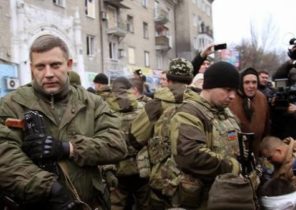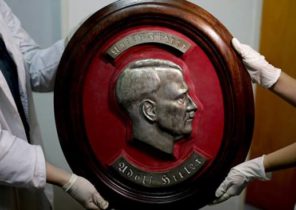Russian historians will come to Finland for study of archival materials relating to the period of the occupation of East Karelia.
National archive of Finland reports Russian historians that the actions of the Finns in the occupied East Karelia between 1941 and 1944, have been thoroughly investigated.
The national archives of Finland and the Russian historical society held last week teleconference on the issue.
The statement of the head of the National archive of Finland Jussi Nuorteva (Jussi Nuorteva), published in the newspaper “Helsingin Sanomat” (Helsingin sanomat) on 28 April, was translated into Russian language. According to Nuorteva, Russian historians have received this information.
Jussi Nuorteva wrote that Finland considered the problem of camps in Eastern Karelia from a legal point of view immediately after the continuation War (Soviet-Finnish war of 1941-1944, ed. transl.).
“Now they are interested in how Finland studied the activities of the military administration and how to conduct the trial in accordance with article 13 of the peace Treaty,” — said Nuorteva in a telephone interview.
Jussi Nuorteva says the Russian historical society send to Finland researchers to explore archival materials “as soon as circumstances permit with the coronavirus”.
According to Nuorteva, the exchange of information about Finnish occupation of Eastern Karelia will be discussed at the Cultural forum in Lahti, which will be held in October 2020. The forum should accept the participation of Russian representatives.
Archival materials of the FSB Finns are already familiar
Two weeks ago, “Julia” (Yle) and many other Finnish media reported that the Russian Investigative Committee opened a criminal case on the actions of the Finns occupied East Karelia in the period from 1941 to 1944. The investigative Committee will examine the events of that time on the subject of genocide.
A criminal case was initiated after the Russian security service FSB has published archival materials on this topic.
According to Jussi Nuorteva, a large part of the FSB published materials were used in Finland after the war as evidence in the trials for war crimes.
The Commission, under the leadership of Soviet major-General Gennady Kupriyanov immediately after the war conducted interrogations and, on their basis prepared more than 2,4 thousand pages of evidence.
The materials of the FSB were opened in 1996, and, according to Jussi Nuorteva, Finnish experts knew about it.
Nuorteva believes the materials are not very convincing, since many of the evidence was based on the results of interrogations. The Finnish archives of the Russian researchers is not used.
Russian media drew attention to the statements about the gas chambers and burying alive. Jussi Nuorteva believes these allegations are absurd.
“Nothing in the reports to the Federal Commission was not, as in the Finnish archival sources, memoirs, or the many studies of Eastern Karelia,” wrote Nuorteva in “Helsingin Sanomat” on April 28.
Jussi Nuorteva also noted that in accordance with the General judicial practice, the judge for the same crime twice is impossible. For crimes in the occupied Eastern Karelia, a total of 14 were convicted of the Finns.
Jussi Nuorteva said that negotiations with the Russian historical society on a course of investigation does not affect it, “live their lives”.
Finland is trying to deal with the Stalinist repression
The interest of the Russian side to the events of the period of occupation of Eastern Karelia is associated with the 75th anniversary of the end of the Second world war. In Russia, the ninth of may, the day the war ended — a great national holiday.
The head of the National archive of Finland Jussi Nuorteva recalls that the study of the activity of the Finns in Eastern Karelia, only one of 22 projects concerning the occupied territories. All of them are connected with the activities of Nazi Germany and its allies on the territory of the Soviet Union.
The national archives of Finland also runs a research project. His goal is to find out what happened to lived in the Soviet Union the Finns after the revolution of 1917, especially during the so called Stalin repressions of the 1930-ies.
The head of the National archives Jussi Nuorteva considers that new criminal case the Investigative Committee will not affect the Finnish study.
According to Nuorteva, by the end of may, the national archives of Finland will transmit to the Office of the State Council a more detailed plan of their research.
In the summer, the office of the State Council will decide on the possibility of funding a research project.







